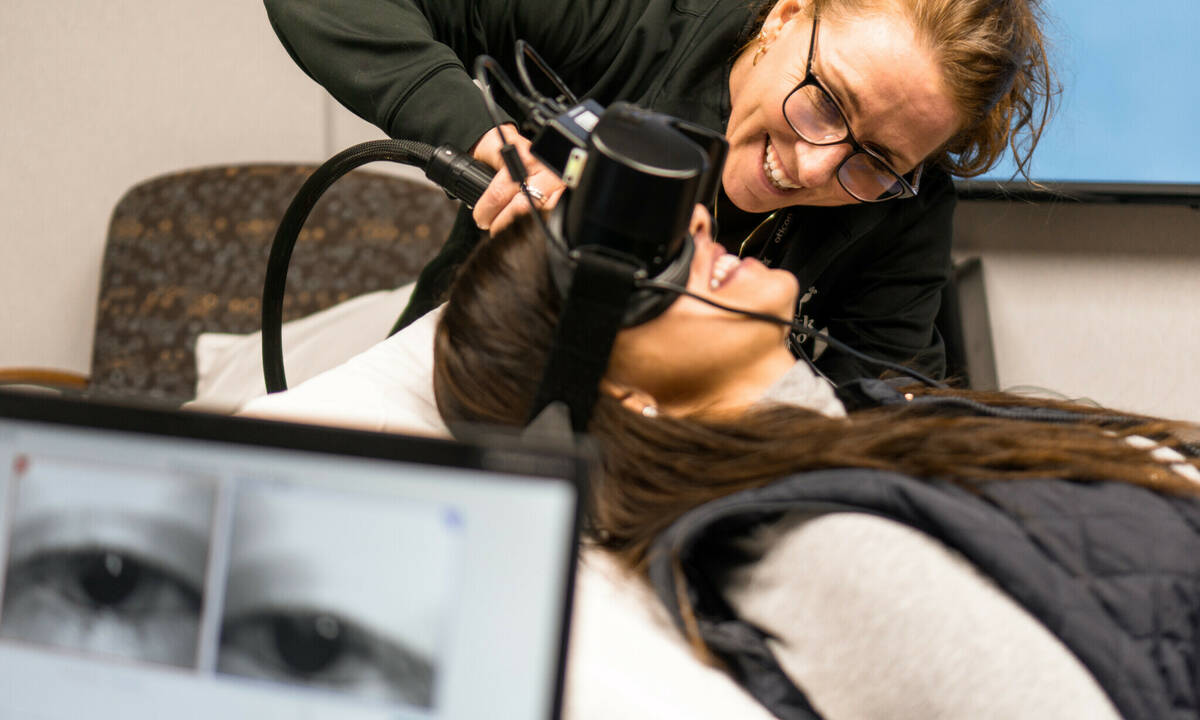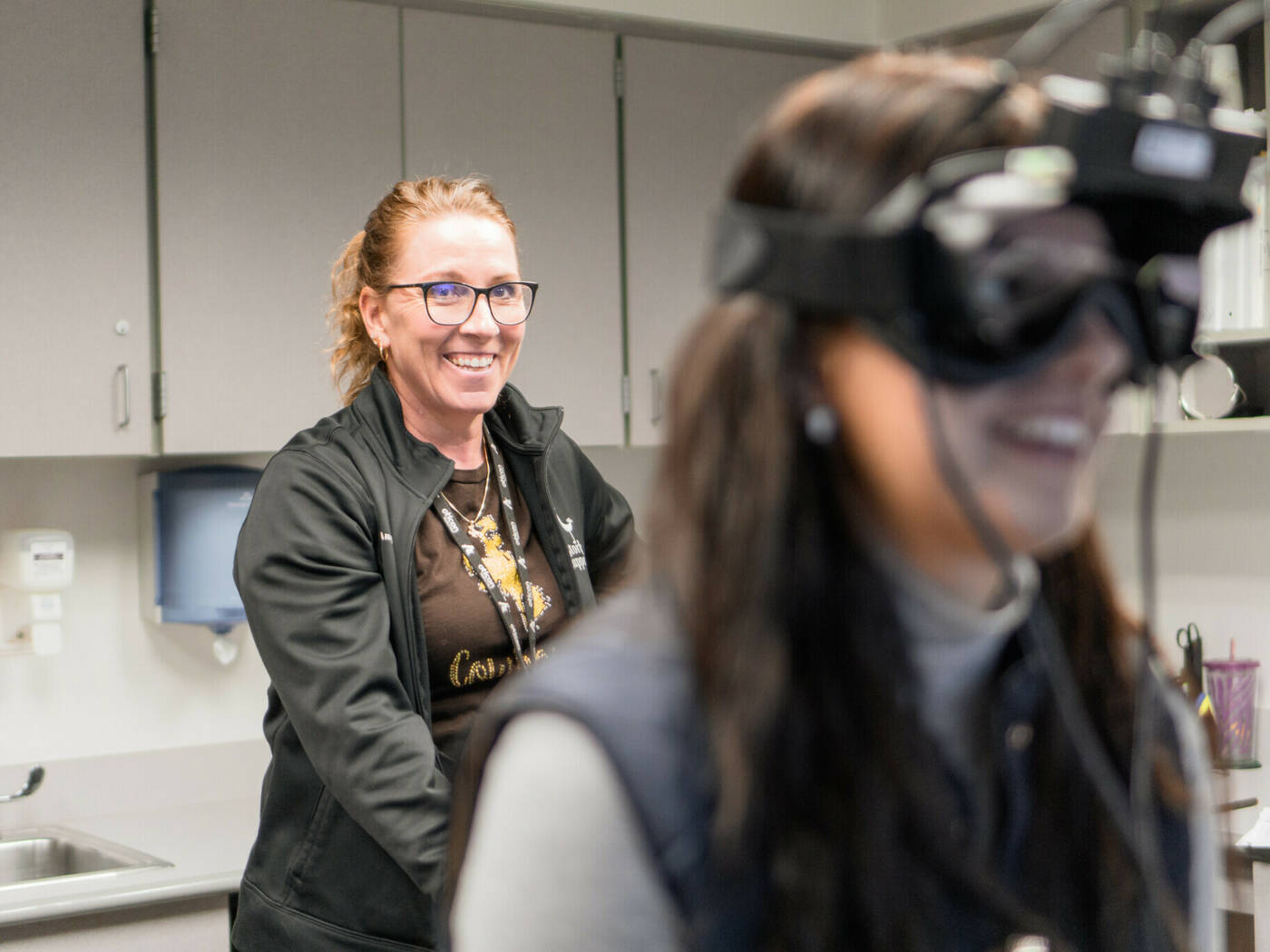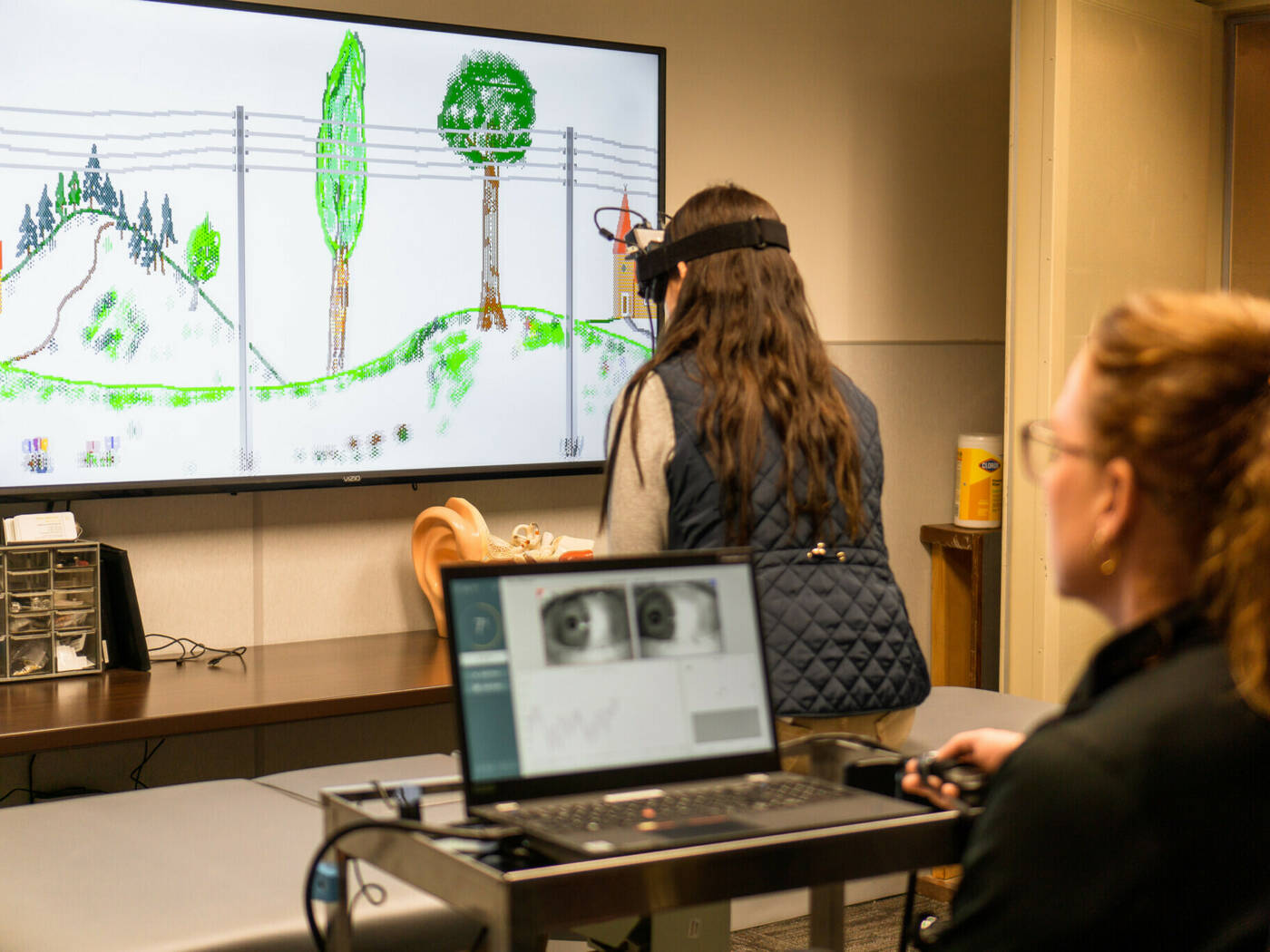Education 6 December 2022
Advanced Audiology Testing Comes to Ivinson
Written by Angelis Medina
Audiologist Amy Weaver discusses new VNG testing at Ivinson.

Ivinson is currently offering a new service called VNG testing. VNG testing is part of audiology services, which is a specialization in hearing and balance.
We interviewed an expert Amy Weaver, that specializes in audiology to help educate individuals on audiology, the services that come with audiology, and what individual would make a good candidate for audiology services.
What is Audiology?
Audiology is a clinical service that involves an investigation of an individual’s hearing, balance, or related disorders that needs further assessment or rehabilitation, states Amy Weaver.
Amy Weaver practices audiology at Ivinson and specializes in diagnostic hearing evaluations, hearing aid maintenance and audiological rehabilitation. Amy has been practicing audiology for over 18 years and can provide diagnostics in:
- hearing evaluations
- hearing aid consultations and fittings
- hearing aid maintenance and repairs
- aural and audiological rehabilitation
- hearing conversations and custom hearing protection
What are some reasons a person might need audiology services?
- Hearing loss
- Dizziness and balance
- Hearing tests and screening
- Tinnitus
- Hearing loss and prevention
- Recommendations for hearing aids or assistive services
What kind of audiology testing is available at Ivinson?
Ivinson has state-of-the-art testing equipment for diagnostic audiological and vestibular evaluation for patients six months and older. This advanced testing includes:
- Audiological
- Vestibular evaluations for patients 6 months and older
- Advanced hearing testing
- Evaluation for fitting of hearing aids and custom hearing protection
- Optoacoustic emission testing
- Eustachian testing tube function
- Middle ear analysis
- Videonystagmorgaphy (VNG)
What is an advanced vestibular evaluation/VNG test?
Amy: Your vestibular system includes organs, nerves, and structures that are in your inner ear. It is your body’s main center of balance. The vestibular system works together with your eyes, sense of touch and brain. Your brain communicates with the different systems in your body to control your balance.
Videonystagmography (VNG) is a test that measures a type of involuntary eye movement called nystagmus. These movements can be slow or fast, steady or jerky. Nystagmus causes your eyes to move from side to side or up and down, or both. It happens when the brain gets conflicting messages from your eyes and the balance system in the inner ear.
VNG testing is a series of tests that measure and record eye movements through video goggles. The testing usually consists of four parts:
- Evaluation of rapid eye movements.
- Tracking tests to measure eye movements as they follow a visual target.
- Positional tests for measuring dizziness in response to different head and body positions.
- Caloric test that measures inner ear responses to warm and cool air circulating in the ear canal.


How does VNG testing help healthcare providers reach a diagnosis?
Amy: VNG testing is used to assess an individual’s vestibular system (the balance structures of the inner ear) or in the part of the brain that controls balance. Studies indicate vestibular testing is extremely thorough and accurate in identifying inner ear disorders. Vestibular testing is also helpful in determining whether additional diagnostic testing, such as an MRI, is needed.
VNG testing results aid health care providers in the diagnosis of many disorders that cause disruption of balance or dizziness such as, benign paroxysmal positional vertigo (BPPV), labyrinthitis, Ménière’s disease, vestibular neuritis, and acoustic neuromas.
How does someone know if they are a good candidate for VNG testing?
Amy: An individual may be a candidate for VNG testing if they are experiencing symptoms that could point to an inner ear disorder, such as: dizziness, problems with balance, feeling of pressure or fullness in your ears, lightheadedness, Tinnitus (ringing in your ears), hearing loss, or vertigo.
What steps does a patient need to take to schedule a VNG test?
Amy: Patients who are experiencing any of the symptoms of a vestibular disorder should first consult with their primary care physician who would determine if a consultation with an Ear, Nose, and Throat Specialist (ENT) would be appropriate. Typically, ENT providers would decide if VNG testing is necessary to reach a diagnosis and determine treatment.
When did Ivinson get the VNG machine and where is the next closest location?
Amy: Ivinson invested in VNG equipment about a year ago. There was significant need for VNG equipment at Ivinson. Due to the lack of VNG testing in the surrounding areas, there were long wait times for VNG testing and results. The nearest location for VNG testing is in Casper, Wyoming.
How does going to the audiologist for testing benefit your everyday life?
Amy: Audiologists can help individuals manage hearing conservation, tinnitus, balance and hearing loss. Even when an individual doesn’t feel like they are experiencing hearing loss, there are other reason to visit the audiologist. Audiologists can also do hearing evaluations to establish a baseline for an auditory system, this can help when there is a need for comparison with a baseline hearing measures.
audiology at ivinson
We specialize in the prevention, identification, and treatment rehabilitation of hearing loss, as well as evaluation of vestibular function for dizziness, vertigo and balance disorders.